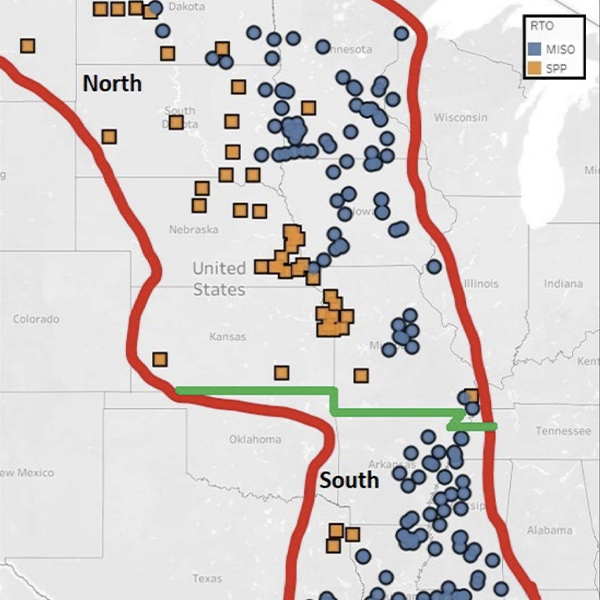The company behind a Massachusetts gas plant has agreed to pay a $17 million penalty and hand back more than $26 million in profits after FERC found that it misled ISO-NE about the construction timeline of the project and took more than $100 million in capacity payments before it was in operation (IN18-8).
Salem Harbor Power Development received capacity payments from the grid operator for its New Salem Harbor Generating Station north of Boston during the 2017/18 capacity period, despite the fact that the project had not yet been finished or commenced commercial operation, FERC said.
The company continually told ISO-NE that its planned commercial operation date was in May 2017, even as it became clear in internal discussions with construction partner Iberdrola that the project would be significantly delayed as it struggled to find welders. The plant ultimately went into operation in June 2018.
In the investigation, which started as an inquiry by ISO-NE’s Independent Market Monitor before being referred to FERC’s Office of Enforcement, the commission found that Salem Harbor failed to provide complete versions of its critical path schedule to the RTO as required by its tariff.
FERC also said that Salem Harbor made false claims regarding the project’s schedule trajectory and violated its “duty of candor” when it officially became a seller in 2016.
Under the terms of the agreement, Salem Harbor, which is in bankruptcy proceedings, will pay a $17.1 million penalty to the U.S. Treasury and disgorge about $26.7 million in profits, which ISO-NE will distribute to market participants that were harmed by the violations.
New Details Emerge About ISO-NE Role
FERC’s filing announcing the settlement agreement also contains new information about ISO-NE’s communications with the project’s developers.
The grid operator recently disclosed that it too is under investigation for allegedly helping Salem Harbor avoid the consequences of missing its commercial operation date (COD). (See FERC Investigating ISO-NE over Gas Plant’s Alleged Capacity Market Fraud.)
According to FERC’s investigation, ISO-NE’s director of system planning encouraged Salem Harbor to keep claiming May 31, 2017, as its COD through 2016, even as the company was discussing and ultimately disclosing growing doubts about that timeline.
The director was not named in FERC’s filing, and ISO-NE declined to identify the person in response to a question from RTO Insider.
In October 2016, the company issued a report which listed May 2017 as its COD but acknowledged delays were likely in the narrative section.
“She is fine with our narrative and just encouraged me to put in a few ‘potential’s’ [sic] to make clear this [delay] is not a foregone conclusion,” wrote a regulatory lawyer contracted with the project, after a meeting with the unnamed director.
The director later explicitly acknowledged the likelihood of the operation date slipping to ISO-NE senior management, saying that an asset management company working with Salem Harbor believed there could be delays of several months.
The director wrote that she believed the company was trying to improve its schedule and that she did not want to change the official COD because it would trigger the submission of a demand bid in the reconfiguration auction (ARA3) and force the company to give away its full capacity supply obligation.
“In my opinion, they will likely be late but not significantly,” the director wrote.
The director later told the lawyer that ISO-NE senior management “knows where things stand” and that her office was trying to keep others at the grid operator from “sniffing around,” according to FERC’s filing.
In January 2017, FERC said, ISO-NE’s systems planning team declined to follow up on an employee’s warning about delays in the project’s development timeline.
In February 2017, a representative for Salem Harbor finally acknowledged to ISO-NE that the project’s COD would have to be delayed by months. The company formally changed its COD in ISO-NE’s online system in March, but only after demand bids were due for the reconfiguration auction and it could no longer be forced to shed its CSO.
FERC said that the settlement with Salem Harbor does not assert violations by anyone other than the company, but that the commission “reserves its right to make a determination as to the facts or issues of law that might give rise to any violation by any other such individual or entity.”
ISO-NE Responds
ISO-NE said that it has been cooperating with FERC’s investigation, but it denied wrongdoing and said it has asked the commission to drop its investigation into the grid operator’s role.
The RTO has also changed its market rules since the incident to automatically penalize resources that are not in operation when their capacity payments start.
“To put it bluntly, Salem Harbor defrauded ISO New England and the region,” RTO spokesperson Matt Kakley said.
He said that under the market rules at the time, “the ISO relied on the veracity of input received from market participants in determining the progression of projects in the capacity market.”
Kakley also said that the conversations depicted in the FERC filing between ISO-NE staff and the company lack context.
“Market participants regularly reach out to the ISO for advice on how to navigate complex market rules,” Kakley said. “In this instance, the settlement agreement fails to provide context regarding these conversations, and, at this point, our ability to respond is constrained by FERC’s rules regarding confidential investigations.”



